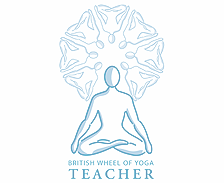
Why Yoga & Mindfulness Meditation is Good for your Health
I was recently invited by leading Consultant Oncologist and Healthy Lifestyle advocate Professor Robert Thomas to write about yoga and mindfulness meditation for inclusion in his cutting edge book ‘Lifestyle and Cancer’ The Facts. I was very happy to have the opportunity to write the facts about the major health benefits of yoga and meditation and why it is finally hitting the world of mainstream health after thousands of years of being resigned to an enlightened few. This is the first draft – I followed the advice of my friend and colleague Paul Fox who is a highly respected Yoga teacher and BBC journalist. He advised me to just write it up without thinking about it too much which is what I did and then sent it to him for his comments, thanks Paul! Here it is for everyone to read -
Yoga has been around for thousands of years and those who practice it today know its positive effects and how well it can make you feel.
Yoga is a complete system of practices which allows us to reconnect with our whole being via mindful movement. It is simple and effective and can be extremely enjoyable. The progressive and accessible practices facilitate the body to re-balance and rejuvenate.
Yoga recognises what is increasingly acknowledged by scientists and medics – that the mind and body are indivisible. The mind profoundly affects bodily function and health, and the state of the body affects the mind. Yoga and mindfulness work directly on the body, directly on the mind or on both at the same time to bring about beneficial changes and promote optimum health.
The main effect of mindfulness is to switch the body from being in a constant state of alert, where the sympathetic nervous system is over-active. Instead, the body is returned to balance via relaxation and messages conveyed by parasympathetic nerves. This promotes healing and balance in the body at a cellular level.
The everyday demands of an increasingly fast-paced lifestyle cause us to become stressed and produce too many stress hormones, such as adrenaline, norepinephrine/noradrenaline and cortisol. Overproduction of these hormones suppresses the immune system and is known to raise risk factors for a range of serious diseases, including cancer, stroke, cardio-vascular disease, heart attack and auto-immune diseases.
Mindful meditation practices develop the ability to choose whether to become caught up in constant thoughts and perceived demands that the mind produces. Once the mind becomes more settled, the ability to notice useful or non-useful thinking patterns increases.
We can re-direct the focus of this steadied mind to become aware of sensations in the body and our responses to the world as they arise. Ultimately, the different aspects of being human; physical body, mind, breathing, and emotions can be realised in a direct individual experience of the present moment. This puts us back in charge of our lives and helps us to respect our bodies and make wise choices about diet, lifestyle and attitudes.
The yoga movements and postures are designed to allow awareness of each part of the body systematically in order to notice tension and tightness which becomes habitually and largely unnecessarily held in muscle fibres and to allow the body to intuitively release it. Free from tension the body can self-regulate and get on with maintaining homeostasis (balance).
Embodied tension results from our responses to our everyday lives and is our story. It is not useful to reject ourselves but to move towards and investigate the aspects of ourselves which need attention and care.
Breath awareness and specific breathing practices are the foundation of yoga practice. The aim is to develop a direct and moment by moment awareness of the body as it breathes and allow the breath to flow as naturally and freely as possible. Then breathing leads the movement which has a calming and soothing effect on the nervous system. There are many health benefits which result from breathing well.
The result of regular yoga and meditation practice is a healthier, stronger more flexible body, a clear, steady mind and a sense of emotional balance and well-being.
Written by Jacquelyn Cooper BWY (British Wheel of Yoga) Dip, BWY Meditation & Self Development Level 1, Meditation & Self Growth Level 2 (post graduate qualifications)
Reviewed by Paul Fox BSc Hons, BWY Dip





